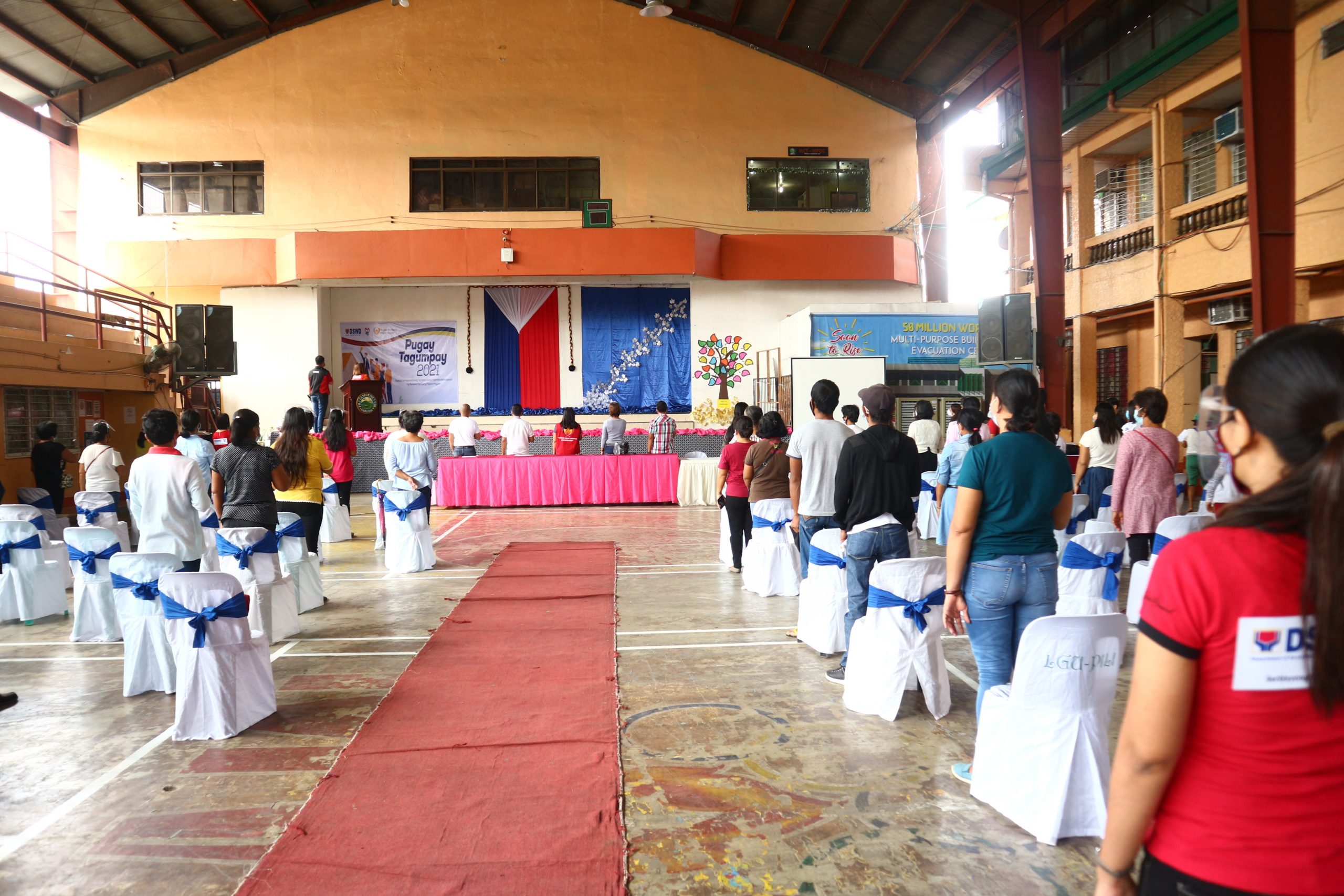
Pugay Tagumpay 2021 is being done to give commendation to household beneficiaries whose lives have improved level of well-being through the Pantawid Pamilyang Pilipino Program (4Ps) with the assistance of partner stakeholders. This activity is being conducted in accordance with the implementation of the National Advisory Council (NAC) Resolution 2, series of 2020 – “Continuity of the cash grant provision to the 4Ps beneficiaries during the state of calamity due to COVID19 pandemic”, wherein client status 26 or households deferred exiting shall remain in the program until period 6 or until January 2021. Several beneficiaries shared testimonials of how the program helped improve them as a member of their family and community.
The assigned City/Municipal Links prepared the households for their program exit through transition and exit procedures and proper endorsement to the receiving Local Government Units (LGUs) for the implementation of the sustainability plan and post-service interventions and referrals. The following cities/municipalities in Camarines Sur have pilot-run the conduct of the Pugay Tagumpay 2021 in Camarines Sur from December 2020 to early February with strict observance of health protocols: Baao (37 households) last 29 December, Ragay (73 households) last 21 January, Del Gallego (37 households) last 22 January, Iriga (107 households) last 27 January, Pili (64 households) last 28 January, Buhi (79households) last 29 January, Bato (50 households) last 2 February, Nabua (130 households) last 2 February, Balatan (46 households) last 3 February, and Bula (64 households) last 3 February.
Camarines Sur is set to conduct Pugay Tagumpay 2021 for the 2,685 household beneficiaries which is 31.88% of the total graduating Pantawid beneficiaries this year. As of 31 December 2020, a total of 56,095 households have exited the program in Bicol Region.
About the program
RA 11310 or the Pantawid Pamilyang Pilipino Program (4Ps) Act is the law institutionalizing the national poverty reduction strategy: a human capital investment program that provides conditional cash transfer to poor households to improve their health, nutrition and education.
Under section 6, to be eligible for cash grants, poor and near-poor households must be willing to comply with the conditions on health and education; and meet the following criteria – with a household member zero to 18 years old or pregnant at the time of registration. Farmers, fisher folks, homeless families, indigenous peoples, informal settlers, and those in geographically isolated and disadvantaged areas are automatically included in the standardized targeting system implemented by the agency but will still have to meet the criteria to be eligible for cash grants.
Under section 4, a maximum of 7 years of benefits period may be given to the beneficiaries, but the NAC may recommend longer period under exceptional circumstances through issuances of resolutions and guidelines consistent with the adopted or used standardized targeting system.
